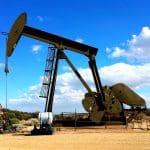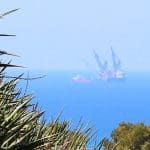
Executive Summary
Since 1967, Israel has systematically colonized Palestinian natural resources and, in the case of hydrocarbons, prevented Palestinians from accessing their own oil and gas reserves. Such restrictions have ensured Palestinians’ continued dependence on Israel for their energy needs. This is compounded by the fact that Palestinians’ efforts to develop their energy sector fail to challenge Israel’s hegemony over resources. Rather, they pursue growth and state building within the framework of the occupation, further reinforcing – even if inadvertently – the asymmetric balance between occupied and occupier.
- While Israel has become a gas exporter in the past few years, it has prevented Palestinians from tapping the Gaza Strip’s gas field, Gaza Marine, for nearly two decades. This forces Palestinians to rely on Israeli energy imports.
- Israel is positioning itself as an energy supplier to resource-poor neighbors. In 2016, Jordan committed to purchasing Israeli gas despite popular protests. The gas deal limits Jordan’s ability to bargain on behalf of the Palestinians, thereby further weakening the Palestinian position.
- The Palestinian Authority’s inability to negotiate the development of Gaza Marine while continuing to purchase Israeli energy, though it improves Palestinians’ quality of life in the short term, ultimately cedes to US calls for “economic peace,” which legitimizes the Israeli occupation.
Policy recommendations:
1. Palestinian negotiators involved in prospective Israeli gas deals must insist on provisions that do not lock out the prospect for future gas from Gaza Marine.
2. Palestinian negotiators should also harness the power of civil society and popular movements against gas deals that benefit Israel at the expense of Palestinian rights.
3. The Palestine Liberation Organization should use the non-observer member state status that Palestine secured at the UN to lobby at international legal forums such as the International Criminal Court, pushing Israel to meet its responsibility as an occupying power under international law; this includes providing inhabitants with electricity and fuel.
Overview
Israel’s occupation of Palestinian territory does not only exist above ground. Since 1967, Israel has systematically colonized Palestinian natural resources and, in the field of hydrocarbons, has prevented Palestinians from accessing their own oil and gas reserves. Such restrictions have ensured the continued dependence of Palestinians on Israel for their energy needs. The Palestinians’ own efforts to develop their energy sector fail to challenge Israel’s overarching hegemony over Palestinian resources. Rather, they pursue growth and state building within the reality of the occupation, further reinforcing – even if inadvertently – the asymmetric balance between occupied and occupier.1
Al-Shabaka Policy Fellow Tareq Baconi begins by reviewing the context of recent gas deals. He goes on to discuss how efforts to develop the Palestinian energy sector fail to challenge this reality and rely primarily on occupation-circumventing practices that seek to enhance quality of life within the context of the occupation. As Baconi argues, these efforts ultimately reinforce the role of the Palestinian territories as a captive market for Israeli energy exports and lay the groundwork for regional normalization under the rubric of “economic peace.” He underscores that lasting peace and stability will only be produced if the underlying factors that maintain Palestinians as subservient to Israel’s rule are addressed and makes a number of policy recommendations as to how to do so.
The Political Impact of Israel’s Gas Bonanza
Until a few years ago, both Israel and Jordan relied quite heavily on Egyptian gas imports. In 2011-2012, and especially after the fall of President Hosni Mubarak’s regime, gas exports from Egypt became unreliable. This was due to both domestic issues within Egypt’s energy sector as well as increased instability in the Sinai Peninsula, which housed the main route of the pipeline carrying gas to Israel and Jordan. With the drop of Egyptian imports, Israel and Jordan began seeking alternative sources of supply. In 2009, an Israeli-American consortium of energy firms discovered Tamar, a field roughly 80km off the coast of Haifa, containing 10 trillion cubic feet (tcf) of gas. With Israel’s energy security in jeopardy, the consortium rapidly moved toward production, and gas began to flow in 2013. A year after Tamar’s discovery, the same consortium identified the much larger Leviathan gas field, estimated to hold around 20tcf of gas.

Figure One: Gas Reserves in the Eastern Mediterranean
Within the space of a few years, Israel moved from being a regional gas importer to acquiring the potential to become an exporter. It looked to both the local markets as well as neighboring countries and further afield to identify potential export destinations. Within its immediate vicinity, the implications for advancing economic normalization were evident: As Prime Minister Benjamin Netanyahu recently declared, producing gas from Leviathan “will provide gas to Israel and promote cooperation with countries in the region.”
Jordan became the first country to commit to buying Israeli gas. Negotiations began between Jordan and Israel soon after Leviathan’s discovery, and a Memorandum of Understanding (MoU) was signed in 2014. That same year, gas sales agreements were also finalized between Tamar’s owners and two Jordanian industrial players, the Jordan Bromine and Arab Potash companies. The MoU signed with Jordan’s government entailed a commitment from Jordan to buy Israeli gas for a period of 15 years. This was met with vigorous protests in Jordan: Many activists rejected dealings with Israel, particularly given its onslaught on the Gaza Strip that year, and Jordanian parliamentarians voted against the deal. In early 2017, gas began to flow from Israel to Jordan Bromine and Arab Potash, although players kept a low profile to avoid reigniting protests.
Anger that Jordan was financing Israel’s gas sector was aggravated by the fact that Jordan had other prospects for the purchase of gas. Following the decline of Egyptian gas, Jordan had constructed a terminal for the import of liquefied natural gas in Aqaba, on the coast of the Red Sea, which started operations in 2015. Furthermore, Egypt’s discovery of the supergiant gas field Zohr in 2016 resuscitated prospects for the resumption of Egypt’s role as a regional gas supplier. Nonetheless, and doubtless influenced by external pressure, Jordan formalized its MoU with Israel in September 2016, overriding parliamentary objections and popular protests.
The Energy Crisis Israel Imposes on Gaza – and Palestine
As Israel became awash with gas, the Gaza Strip’s pitiful reality became starker than ever. The Gaza Strip has been under blockade since 2007. The Gaza Power Generation Company (GPGC), the sole company of its kind in the Palestinian territory, currently runs on liquid fuel that is purchased and transported into the Gaza Strip from the Palestinian Authority (PA) in the West Bank. To supplement power from GPGC, Gaza purchases electricity from the Israeli Electricity Company as well as from the Egyptian electric grid.2 Even so, fuel purchased for power generation in Gaza is insufficient to meet local demand, and the Strip has suffered from chronic electricity shortages since Israel imposed the blockade. In early 2017, protests swept throughout Gaza as inhabitants of this coastal enclave protested having electricity for only three to four hours daily. Aside from the tremendous restrictions these shortages put on mundane facets of life, electricity outages have a crippling impact on the economic activity of the private sector, healthcare, education, and life-sustaining facilities such as water sanitation plants. Stunted operations in these areas have consequences that are both immediate and lasting, impacting rising generations.
As Israel became awash with gas, the Gaza Strip’s pitiful reality became starker than ever Share on XBlame for Gaza’s energy crisis is fired in all directions. Protestors flooding the winter streets blamed Hamas’s government, the PA, and Israel. Anger was directed at Hamas’s government for allegedly diverting funds from the purchase of fuel necessary to run Gaza’s only power plant toward other activities, including the building of tunnels. Frustrated demonstrators accused the PA of supporting the blockade by controlling fuel purchases and transfers into Gaza. The power company itself, a privately owned operation, is repeatedly criticized for supposedly making profit off the backs of ordinary Gazans who suffer from these shortages. To mitigate the particularly painful winter months of late 2016 and early 2017, interventions into Gaza’s energy sector were forthcoming from Turkey and Qatar in the form of fuel supplies that allowed the resumption of power generation from GPGC. These measures are at best short-term palliatives that will carry Gazans through another chapter of a chronic crisis.
In this wave of popular anger and recrimination, the impact of the Israeli blockade on the Gaza Strip and Israel’s broader colonization and control of Palestinian resources is diluted, if not pushed to the background.
Yet Palestinians discovered gas reserves almost a decade before Israel’s gas bonanza. In 1999, the Gaza Marine field was discovered off the coast of Gaza, and the license for exploration and production was awarded to BG Group, the major British oil and gas company since acquired by Shell. In the early days of the discovery, this national treasure was hailed as a breakthrough that could offer Palestinians a windfall. At a time when the Oslo Accords that had been signed in 1993 still seemed plausible, the resource discovery was viewed as something that could provide Palestinians with a much-needed boost toward self-determination.
With an estimated 1tcf of gas, Gaza Marine is not sufficiently large to act as an exporter. But the gas volumes it holds are sufficient to make the Palestinian energy sector entirely self-sufficient. Not only would Palestinians not have to import Israeli or Egyptian gas or electricity, but the Gaza Strip would not suffer from any electricity shortages. Moreover, the Palestinian economy would enjoy a significant source of revenue.
That move to sovereign rule was not to be. Despite persistent attempts by owners of the field and investors to develop Gaza Marine, Israel placed unyielding restrictions that have prevented any measures from taking place. This is despite the fact that exploration and production from Gaza Marine would be relatively straightforward given the shallow depth of the reserve and its location close to Palestinian shores.3 According to documents uncovered by Al-Shabaka, Israel initially prevented the development of this field as it sought commercially favorable terms for the gas produced. After Israel discovered its own resources, it began citing “security concerns” that were heightened with Hamas’s takeover of the Gaza Strip. Although Netanyahu allegedly considered allowing Palestinians to develop Gaza Marine in 2012 as part of a broader strategy to stabilize the Gaza Strip, these efforts have yet to materialize. Given the recent acquisition of BG Group by Shell, and the latter’s global asset divestment program, it is likely that Gaza Marine will be sold off.
Until Israel ends its stranglehold on the Palestinian economy, this Palestinian asset is likely to remain stranded. Indeed, the manner in which the Israeli and Palestinian gas discoveries have shaped economic development in Israel and the Palestinian territory elucidates the power disparity between the two parties. Unlike Israel, which rapidly secured energy independence after the discovery of its gas fields, Palestinians are unable to access a resource they discovered close to two decades earlier. Rather than addressing the root cause of the blockade and the occupation regime that has prevented their control of resources such as Gaza Marine, Palestinians are instead forced to seek immediate measures that mitigate the pressing misery they face. Although this is understandable in the context of a brutal occupation, efforts to enhance quality of life under occupation overlook the longer-term strategic goal of securing energy independence within the broader goal of freedom from occupation and realization of Palestinian rights.
Economic Peace and Normalization
Israel’s gas discoveries are often heralded as potential catalysts for a regional transformation. The positioning of the Israeli state as an energy supplier to resource-poor neighbors is considered a sure way to facilitate economic integration between countries such as Jordan and Egypt as well as the Palestinians. The economic benefit that cheap pipeline gas could offer these countries is seen to offset any social and political concerns among their citizens regarding dealings with Israel. This line of thinking assumes that through economic integration, the pursuant stability would diminish prospects of volatility in an explosive region as Israel and its neighbors become integrated in mutual dependency. The notion of “economic peace” has a long history in the region and has manifested itself in various forms, including recently in Secretary of State John Kerry’s economic development proposal. This view also appears favored by the Trump administration’s ambassador to Israel, David Friedman. Rather than directly addressing the political impasse caused by Israel’s prolonged occupation and other violations, such proposals address issues related to quality of life, trade, or economic growth, presumably as a stepping stone to peace. With similar thinking, once the Israeli gas discoveries were made, the Obama administration began to explore ways to position Israel as a regional energy hub.
Palestinians are forced to seek immediate measures that mitigate the pressing misery they face Share on XProponents of this approach of separating national and political rights from economic incentives would argue that there is an obvious commercial advantage for Israeli gas to be used within the Palestinian territory and Jordan. Israel now has an excess of gas, and these regions are still dependent on energy imports. In the case of the Palestinian territory, dependence on Israel already exists, and not only in Gaza: close to 88 percent of Palestinian consumption is supplied by Israel, with the West Bank importing almost the entirety of its electricity from Israel. Advocates for economic peace believe that prospects for instability diminish when such mutual dependency is reinforced.
Rooted in such conviction, the US Department of State facilitated many of the gas negotiations between Israel, Jordan, and the Palestinians. The newly created Special Envoy and Coordinator for International Energy Affairs, a post through which the US strengthened its energy diplomacy arm worldwide under the Obama administration, encouraged discussions to enable Israel’s export of gas to Jordan and the Palestinians, with evident success.
Jordan is not the sole prospective recipient of Israeli gas. In 2010, the PA approved plans for the establishment of the Palestine Power Generation Company (PPGC), the first such company in the West Bank and the second in the Palestinian territory after GPGC in Gaza. Located in Jenin, this 200 megawatt power plant is spearheaded by private investors (including PADICO and CCC) who are working to strengthen the Palestinian energy sector by securing electricity generation in the West Bank and reducing the high cost of Israeli electricity imports. PPGC entered into negotiations with Israel to purchase gas from Leviathan for electricity generation. Palestinians protested this decision, calling for efforts to develop Gaza Marine instead of relying on Israeli gas. Talks collapsed in 2015, but it is unclear if these have merely been temporarily suspended.
The Dangers of Truncated Sovereignty
There are several national and regional dangers to the push for closer integration through gas deals in the absence of a concurrent effort on the political front. The first danger is that Palestinian energy security is pinned to Israel’s goodwill. Israel can and has in the past used its power to effectively turn the taps off for Palestinian consumers. The most evident (and violent) manifestation of Israel’s willingness to withhold power to Palestinians is its decision to destroy without hesitation the sole power generation company in the Gaza Strip during its bombardment of the coastal enclave in 2006 and again in 2014. Secondly, this approach legitimizes the Israeli occupation, soon entering its fiftieth year. Not only is there no cost to Israel’s prevention of Palestinian state building, there is rather a direct reward in the form of revenue from the sales of gas to territories maintained indefinitely under Israel’s territorial control. Thirdly, and perhaps most importantly, such energy exchange and trade in the pursuit of economic peace in the absence of any political prospects merely entrenches the power imbalance between the two parties – the occupier and the occupied. Such integration propagates a fiction of normative sovereign relations between an occupying power and a captive economy in the West Bank and Gaza.One might think back to similar quality of life initiatives that were put forward in the 1980s, with the direct encouragement of the Reagan White House, as a failed alternative to political engagement with the Palestine Liberation Organization (PLO). The constant efforts to circumvent Palestinian political demands through such measures has allowed Israel to manage, rather than resolve, the conflict.
American diplomats are facilitating negotiations that leave Palestinians bound to Israel Share on XThe case of gas demonstrates most starkly how Palestinian state building efforts through the development of national resources have been elided in favor of alleviating energy crises within the framework of truncated sovereignty. Instead of addressing Palestinians’ inability to explore their own natural resources, American diplomats are actively working with Israel to facilitate negotiations that enhance Palestinian “quality of life” that ultimately leaves them bound to Israel in perpetuity.
This approach carries regional dangers as well. Jordan is currently dependent on Israel for around 40 percent of its energy imports. Jordan’s willingness to enter into this kind of commitment, despite several geostrategic disadvantages, advances Israel’s normalization in the region even as it maintains its occupation of Palestinian territory. This disposition heralds several threats at a time when the Trump administration is proposing the pursuit of “outside in” diplomatic measures that might entirely circumvent the Palestinians.
Strategies for Pushback
In normal conditions, mutual dependency and economic development are indeed anchors against instability and hold the benefit of advancing the quality of life of the inhabitants of the region. However, they must not be viewed as an end in their own right, and certainly not as a substitute for the realization of Palestinian rights. Such a depoliticized view can only go so far. Focusing solely on economic peace has detrimental consequences precisely because it overlooks the broader historical context that has led to Palestinian, and possibly regional, dependency. Economic growth will never remove Palestinian calls for sovereignty and rights or the demand for self-determination. That was a lesson that was fully articulated with the eruption of the first intifada close to 30 years ago, after decades of normalized economic relations between Israel and the territories under its military occupation. While “economic peace” could offer short-term relief, it will only pave the way toward greater stability if it is built on a foundation of equality and justice. Palestinians’ right to their own resources is subject to final status negotiations with the Israelis. The current gas agreements being pursued will create an infrastructure of dependency that will be difficult to untangle in the case of a negotiated settlement. More importantly, given the vanishing hopes of a negotiated two-state solution, these agreements merely concretize the status quo. Therefore, while economic relations may have to be pursued to avert humanitarian suffering, as the case might be with increasing fuel and electricity supply to Gaza, the PLO and PA as well as Palestinian civil society and the Palestine solidarity movement must continue to use all the tools at their disposal to push for justice and rights for Palestinians. In the immediate future, if gas deals persist despite popular opposition, Palestinian negotiators involved in prospective gas deals with Israel must at the very least insist on provisions that do not lock out the prospects for future gas from Gaza Marine. This could be done by creating the legal mechanisms that would allow the introduction of third-party access into the supply agreements. Although it would be difficult to negotiate such provisions, this is of vital importance as it leaves room for flexibility around future supply from Gaza Marine and reduced dependency on Israel. The gas supply contracts should also include provisions for revision of agreement terms in the case of major developments on the political front.Palestinian negotiators should also look to civil society resistance to reinforce their efforts rather than seeking to dismiss or crush them. There are models that can be emulated whereby negotiators are able to harness the power of the popular movements against some of these deals. When it comes to water rights, for example, there is an advocacy task force (EWASH) that coordinates the work of local and international groups. EWASH carried out a campaign that exposed Israeli settlements’ theft of water from Palestinians and raised the issue in the European Parliament. Perhaps such a coalition could be established to mobilize for energy sovereignty. At the same time, the PLO/PA must use such economic negotiations as a means of securing accountability from Israel rather than as a way of acquiescing to enforced dependency. In particular, the non-observer member state status that Palestine has secured at the UN must be used to lobby at international legal forums such as the International Criminal Court to push Israel to meet its responsibility as an occupying power under international law. This means it is tasked with the responsibility of safeguarding the livelihood of inhabitants under its control, including the provision of electricity and fuel, and it is accountable for decisions it might make to “turn the taps off.” Certain elements of economic peace may serve the Palestinians in the short term by underpinning economic growth and development. But these cannot come at the expense of an indefinite state of dependency and truncated sovereignty. Palestinians must work on two fronts: They must push to hold Israel’s occupation accountable in international forums. And they must ensure that prospects of forced economic integration and any attempt by Israel to impose a one-state apartheid reality is met by a call for rights and equality. Whichever political vision is pursued for Israel and the Palestinians, the Palestinian leadership must formulate a strategy around these gas deals and contextualize notions of economic development within the wider struggle for Palestinian liberation.
- Al-Shabaka publishes all its content in both English and Arabic (see Arabic text here.) To read this piece in French or Italian, please click here or here. Al-Shabaka is grateful for the efforts by human rights advocates to translate its pieces, but is not responsible for any change in meaning.
- These measures for the purchase and transport of fuel are in line with the Protocol on Economic Relations, also referred to as the Paris Protocol, enshrined between Israel and the PLO as part of the Oslo Accords.
- Gaza Marine is not the only resource that Palestinians have been unable to explore. The oil fields in the West Bank have also faced issues with access because of Israeli restrictions.
Tareq Baconi serves as the president of the board of Al-Shabaka. He was Al-Shabaka’s US Policy Fellow from 2016 – 2017. Tareq is the former senior analyst for Israel/Palestine and Economics of Conflict at the International Crisis Group, based in Ramallah, and the author of Hamas Contained: The Rise and Pacification of Palestinian Resistance (Stanford University Press, 2018). Tareq’s writing has appeared in the London Review of Books, the New York Review of Books, the Washington Post, among others, and he is a frequent commentator in regional and international media. He is the book review editor for the Journal of Palestine Studies.













